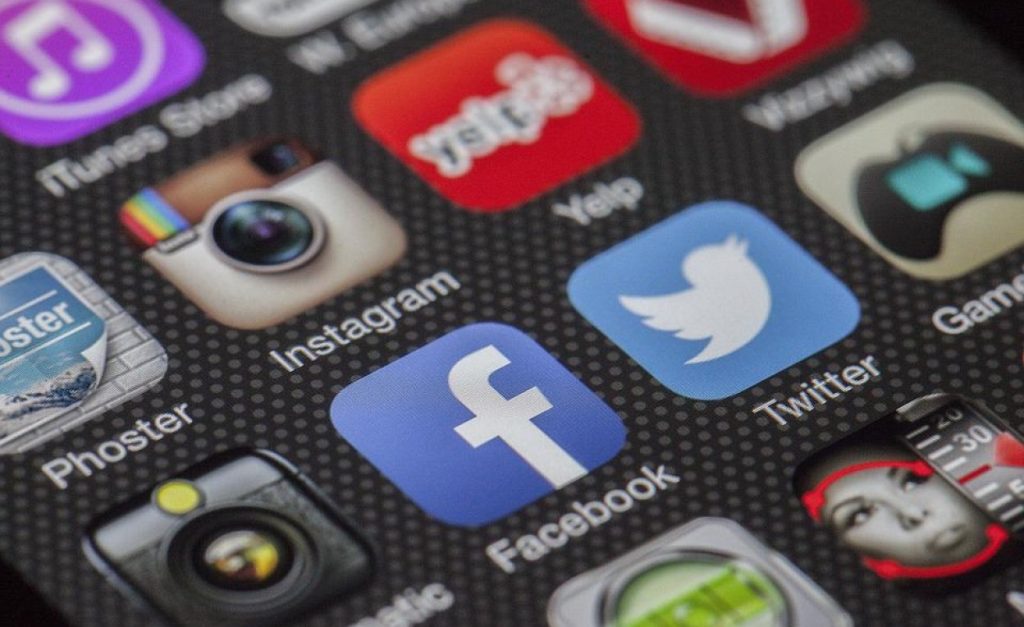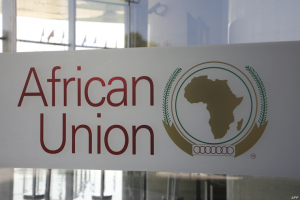Africa: Network of Bot-Like Accounts Supporting Sanctioned Mining Billionaire

An online network of bot-like accounts, media sites and X users has been spreading disinformation supporting sanctioned Israeli tycoon Dan Gertler and attacking civil society groups in the Democratic Republic of the Congo (DRC), Global Witness analysis has found
Dozens of X accounts and at least 10 Congolese news websites shared misleading claims in July that an Israeli arbitration involving Gertler cleared him of all corruption allegations in the DRC.
A group of bot-like accounts amplified the claims and used the misleading reports to argue against American sanctions on Gertler, with some claiming that he was wrongly accused of corruption.
The businessman was sanctioned by Washington in 2017 for amassing a fortune through “hundreds of millions of dollars’ worth of opaque and corrupt mining and oil deals in the DRC.” The DRC stands to lose more than $3.7 billion because of Gertler’s deals, according to estimates made by the civil society coalition Le Congo N’est Pas à Vendre (CNPAV). Global Witness is a member of CNPAV.
The apparent attempt to rehabilitate Gertler’s image in the DRC risks whitewashing the activities of a sanctioned actor and threatens efforts to ensure transparent and ethical sourcing of transition minerals in the country.
The coordinated bot-like activity suggests an organised disinformation campaign. It echoes a pro-Gertler online smear campaign against Global Witness and NGO PPLAAF (Platform to Protect Whistleblowers in Africa) in 2020.
Exoneration claims
The misleading claims that Gertler had been exonerated of any corruption in the DRC first appeared in a series of similar, and in some cases identical, articles published in online Congolese media in mid-July.
These articles referenced a Bloomberg story published days earlier, which covered a 2024 Israeli arbitration on a dispute between Gertler and two Israeli former investors.
Bloomberg reported that Gertler’s testimony saw him provide details, for the first time in his own words, of payments that he made to Augustin Katumba Mwanke, who was a trusted aide of the DRC’s former President Joseph Kabila, and stakes in ventures Gertler held on Katumba’s behalf.
The articles subsequently published on Congolese sites claimed that the Israeli decision over specific payments amounted to complete exoneration of Gertler’s activity in DRC.
Three identical articles published in French alleged: “This is the first time that an independent and authorized legal body has reviewed all information about Gertler’s activity in Congo and concluded that no bribes were handed over and proven.”
However, the arbitration, which Gertler is seeking to overturn, was a civil dispute between business partners. Arbitrations are private and the decision is meant to remain confidential to the parties, however some of its findings have been reported in various places, including by Bloomberg.
While the arbitration found that there was no “compelling evidence” that certain payments to Katumba were bribes, it also made clear that it was not considering payments which the US Department of Justice had already described as bribes when sanctioning Gertler.
It also affirmed that the private arbitration decision was only meant to settle the dispute between the parties, and that nothing in the decision was to be used by anyone other than those parties.
Who is Augustin Katumba Mwanke?
Katumba held a mixture of official and unofficial positions during his life. In 2006, he was elected as a deputy and as executive secretary of the ruling party in 2007, according to media reports.
He was described as a “highly influential figure at the heart of Kabila’s presidential office” and one of the president’s most influential advisors with “de facto” control over mining deals in the DRC.
In his posthumously-published book, Katumba describes how between 2007 and 2008 he negotiated the “deal of the century” between Sicomines and the DRC.
The publication of a large number of articles by DRC media claiming that the decision has exonerated Gertler of any wrongdoing stands in stark contrast to longstanding corruption claims against Gertler, which led to the US government sanctioning him personally in 2017.
This ruling – which was a civil dispute between business partners rather than an investigation into the legality of Gertler’s activities in the DRC – did not have a remit to exonerate him from all historic corruption and bribery allegations in the DRC as Congolese media reporting appeared to allege.
Global Witness approached Gertler for comment.
His spokesperson said: “That judgment provides one of the most detailed examinations of our activities in the DRC and explicitly concludes that there was no evidence of corruption in our operations. The judge makes this point repeatedly, so any reporting that reflects these findings is accurate journalism, even if it does not align with your perspective.”
Gertler’s spokesperson denied undertaking any media campaign in the DRC in relation to the arbitration decision.
Bot-like accounts push for sanctions relief
Days after the misleading articles were published, a group of bot-like accounts on X claimed that US sanctions of Gertler in the DRC were unjust in light of the supposed exoneration, and harmful to the DRC’s interests.
Global Witness found 40 accounts, all created in February, that posted similar replies to an X post by Carbone Beni, a self-described “pro-democracy activist” on 16 July.
The replies made arguments opposing sanctions on Gertler. One reply claimed: “Every day with these sanctions, the DRC loses opportunities. The Israeli decision must push the US to act quickly to correct this injustice.”
Another said: “Depriving the DRC of resources because of unfair sanctions is immoral. The Israeli justice system is paving the way for a necessary change.”
Aside from the similarities in the contents of the posts, analysis of the accounts’ history suggests a coordinated campaign. The accounts were all created in February 2025, and all have posted on the same dates.
None of the accounts have an identifiable owner. Only one account has an image of an identifiable person in its profile picture, and reverse image searching shows that the picture originates from a fashion brand’s website.
The email addresses associated with each cluster of accounts follow the same format. Each email begins with the first two letters of the account’s display name and ends with an apparent Gmail domain.
For example, an account under the name of Divin Yondo is associated with the email address di********@g****.***, while an account with the display name Gloria Binzala was registered under the address gl***********@g****.***. This suggests they may have been created in coordination.
Global Witness cannot discount the names of real persons being used without their knowledge as front identities for bot accounts.
The accounts appear to have been used not only to whitewash Gertler’s activities but also to undermine civil society groups holding Gertler to account.
Later the same day, on 16 July, the accounts targeted Jimmy Kande, Director of PPLAAF. Kande had posted a statement on X calling out what he claimed was a “digital army” of “pseudo-experts” and “media relays” who had emerged to distort the facts around the arbitration.
All 40 of the accounts created in February 2025 replied. They posted with similar structure and language, such as “Gertler pays taxes, you only pay with words #TaxPayerVsWhiner” and “Gertler at least has the merit of existing, you’re just a shadow #RealityVsFantasy” (posts translated from French).
Dozens of other accounts that appear to be fake also posted similar replies to Beni. These accounts, created in March, April and July, have been identified as bot-like through similarities in their behaviour and the structures of the email addresses associated with the accounts.
One group of accounts, all created in March 2025, posted on the same dates as the 40 accounts created in February. Several of the accounts have only one or two followers and follow Russian-language accounts.
These accounts are all registered to email addresses that follow the same format. For example, the emails used to register the accounts @lotulukelela and @kasongo16738 are it********@r******.** and bh********@r******.**.
This suggests an extended and coordinated bot-like network, with sets of accounts possibly created at different intervals.
Approached for comment, Carbone Beni said that his views on Gertler were entirely independent, and that he cannot be held responsible for the actions, opinions or comments of other users on X.
The articles
The original articles claiming that Gertler had been exonerated were published on at least 10 Congolese media sites over a period of two days in July. Three of the pieces include identical wording.
While these articles give the appearance of widespread independent media coverage, several of the sites appear to regularly publish articles favourable to Deo Kasongo, who is believed to carry out communications for Gertler in the DRC. There is no suggestion of any wrongdoing by Mr Kasongo.
Global Witness approached all the media outlets for comment.
AfricaNewsRDC, Scoop RDC and Infos27 declined to respond to our questions, with AfricaNewsRDC and Scoop RDC stating that they are independent media.
Scoop RDC also sent Global Witness a copy of an open letter, which called Global Witness’ approach to them for comment a “blatant attempt at intimidation”. The letter, which was signed by individuals from 17 other DRC-based outlets, said that Global Witness was “attempting to dictate narrative and police speech.”
Scoop RDC also published on its website the full email that Global Witness had sent giving the outlet an opportunity to comment. The post included an image of a Global Witness staff member and their contact details. Several other outlets also published the image alongside specific references to the same staff member.
This mirrors similar personal attacks made by some of these media outlets on other members of the civil society coalition CNPAV.
None of the media sites responded to the questions put to them by Global Witness, asking how they obtained the information reported in the near-identical stories they published, or how they had independently verified this information.
Gertler’s spokesperson said that the media coverage was an independent response to Bloomberg reporting on the arbitration, and that his representatives did not issue a press release on the matter. Independent journalists in the DRC remain interested in their activities, they said, referring to ongoing campaigning by CNPAV as contributing to this interest.
They continued: “The diversity of opinions on the Bloomberg arbitration article expressed by the Congolese media reflects the principle of free speech. Again, and for the avoidance of any doubt, we have not undertaken any media campaign in the DRC regarding this issue.
“In recent months, we have published two reports addressing factual inaccuracies in CNPAV’s analysis of mining asset acquisitions; however, these reports are unrelated to the arbitration case. Congolese reporting therefore reflects the views and analysis of the local media, not any coordinated effort on our part.”
Claims appear across X
The articles published by the media organisations were further amplified at the time by a wide variety of X users separate to the bot-like accounts.
Several accounts with large followings shared the apparent disinformation, as well as posts attacking CNPAV across July that included a video with footage likely generated by AI.
The identities behind some of the accounts are unclear, but some of their bios suggest media and communications links. They have thousands or tens of thousands of followers.
At least five of the X accounts have also posted support for Kasongo and his communications group Divo.
Global Witness approached Kasongo and the Divo Group for comment but did not receive a response. Our investigation has found no evidence that Kasongo is responsible for the accounts and outlets spreading the disinformation.
Policy recommendations:
Affirm the integrity of corruption sanctions (and OFAC): Governments should publicly and jointly reaffirm that sanctions imposed for corruption remain valid unless credible criminal or judicial proceedings overturn them not private commercial arbitrations. This would prevent misrepresentation of rulings (like the Israeli arbitration) as “exoneration.”
Stand against disinformation that undermines accountability: Governments, platforms, and international bodies should condemn coordinated disinformation campaigns that target journalists or civil society watchdogs, or aim to whitewash sanctioned individuals. When evidence of bot networks or media campaigns emerges, governments and digital platforms should issue public fact-checks to stop the spread.
X’s policies state that you may not “artificially amplify […] information or engage in behavior that manipulates or disrupts people’s experience” and that users that violate this policy may have the visibility of their posts limited and, in severe cases, their accounts suspended. X must investigate whether the list of potential bots that we have identified here violate their policies and invest more in protecting our democratic debate from manipulation.
Protect space for civil society: States should commit to protecting NGOs, whistleblowers, and journalists from digital smear campaigns and intimidation. This includes funding support for digital security and rapid public rebuttals when smear campaigns emerge.
Demand transparency from tech platforms: Platforms should be required (globally, not just in one jurisdiction) to: disclose when coordinated fake accounts are removed, publish the data on networks linked to political or commercial influence, and work with civil society groups who are being targeted.
Close loopholes for sanctioned actors: Countries should cooperate to ensure that sanctioned individuals cannot use PR firms, lobbyists, or shell companies to launder reputations or assets across borders. Any attempts to push for delisting via disinformation should be treated as an extension of sanctions evasion.
Strengthen international coordination: The US, EU, UK, and allies should establish a cross border working group to monitor and respond to disinformation linked to corruption cases.
By Global Witness.



